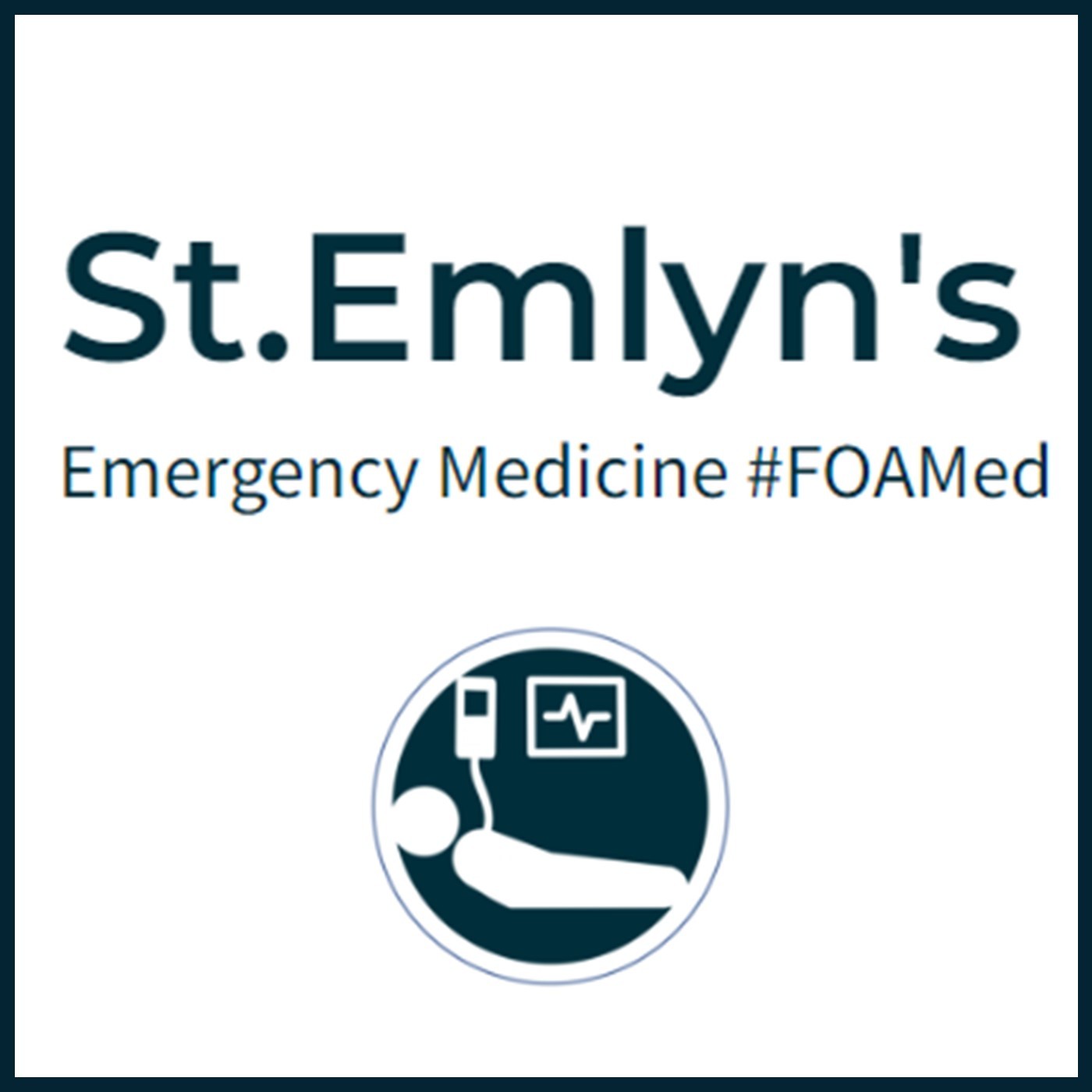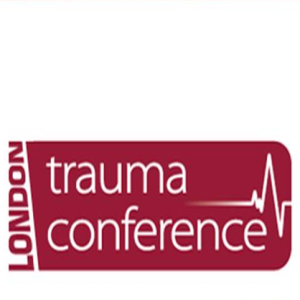
1.3M
Downloads
272
Episodes
A UK based Emergency Medicine podcast for anyone who works in emergency care. The St Emlyn ’s team are all passionate educators and clinicians who strive to bring you the best evidence based education. Our four pillars of learning are evidence-based medicine, clinical excellence, personal development and the philosophical overview of emergency care. We have a strong academic faculty and reputation for high quality education presented through multimedia platforms and articles. St Emlyn’s is a name given to a fictionalised emergency care system. This online clinical space is designed to allow clinical care to be discussed without compromising the safety or confidentiality of patients or clinicians.
Episodes

Thursday Dec 11, 2014
Ep 31 - London Trauma Conference: Day three round up.
Thursday Dec 11, 2014
Thursday Dec 11, 2014
Key Insights from the London Trauma Conference: Training, Innovation, and Clinical Governance in Emergency Medicine
Welcome to the St. Emlyn’s podcast summary of the London Trauma Conference. Over the past few days, experts in emergency medicine and pre-hospital care have shared valuable insights into the latest developments in our field. This blog post covers the highlights, focusing on effective training strategies, innovative practices, and crucial discussions on clinical governance.
Quality Education in Pre-Hospital Care by Cliff Reid
Cliff Reid’s session on delivering quality education in pre-hospital care was a standout. He emphasized that training for performance goes beyond knowledge acquisition. While understanding SOPs and the flip classroom approach are important, practical application is crucial.
Key Training Techniques:
- Stress Exposure Training: Regularly exposing doctors to high-pressure situations to build resilience.
- Perturbation: Introducing distractions during simulations to test team stability, such as simulating patient vomiting or monitor failures during an RSI procedure.
- Cross-Training: Ensuring paramedics and doctors train together and are evaluated as a team.
Cliff's insights highlight the necessity of training cohesive units to prepare effectively for real-world scenarios.
Learning from Failures in Modern Forensic Pathology
Professor Guy Ratti discussed modern forensic pathology, focusing on how clinical techniques are applied post-mortem to determine causes of death. The use of CT scans, angiography, and point-of-care toxicology testing has revolutionized post-mortem investigations, providing quicker and more detailed insights.
Learning Points:
- Application of Clinical Techniques Post-Mortem: Using CT scans and angiography to identify trauma causes.
- Point-of-Care Toxicology Testing: Rapid results within 45 minutes that can guide future clinical decisions.
For pre-hospital providers, understanding these techniques helps in learning from patients who couldn’t be saved, improving future care strategies.
Clinical Governance: Striking the Right Balance
Clinical governance was a key theme, with discussions on its importance and implementation. Effective governance structures are essential for ensuring consistent, high-quality care.
Governance Highlights:
- Structured and Regular Feedback: Creating environments where teams feel comfortable receiving and acting on feedback.
- Balancing SOP Adherence and Flexibility: Recognizing situations where deviation from SOPs is necessary for patient care.
The consensus was that governance must be tight enough to maintain standards but flexible enough to accommodate individual patient care nuances.
Transporting and Transferring Difficult Patients
A session dedicated to transporting and transferring difficult patients in the HEMS context provided practical advice and highlighted innovative approaches from international contingents.
Patient Categories:
- Psychiatric Patients: Safe sedation with ketamine for acutely psychotic patients.
- Bariatric Patients: Innovative positioning techniques, such as using a vac mat for intubation.
- Infectious Disease Patients: Protocols for safely managing and transporting patients with infectious diseases.
These insights are valuable for those working in diverse and challenging environments, ensuring patient safety and effective care during transfers.
Afternoon Sessions: EMS Disasters and Quick Hits
The afternoon sessions covered a range of topics, from emotional accounts of EMS disasters to rapid-fire discussions on current practices.
EMS Disasters:
- Case Studies from Norway and Glasgow: Brave speakers shared their experiences, offering lessons on safety and crisis management.
Quick Hits:
- Cervical Collars Debate: Discussing the efficacy and necessity of cervical collars, with evidence suggesting limited benefit but continued standard use.
- Pre-Hospital Blood Testing: Advocating for the feasibility and benefits of conducting blood tests in the pre-hospital environment.
These sessions underscored the importance of staying updated with current debates and practices, continuously evaluating and improving methods.
Innovation in Medical Technology: The GoodSAM App
Mark Wilson’s presentation on the GoodSAM app showcased how technology can revolutionize emergency response. The app alerts trained responders to nearby cardiac arrests, potentially saving lives by reducing response times.
Key Features:
- Free to Download: Available on both the App Store and Google Play.
- Community-Based: Encourages both medical and non-medical individuals to participate.
This app exemplifies how digital innovation can enhance traditional emergency response mechanisms, making it a must-have tool for responders and a valuable resource for the community.
Apnoeic Oxygenation During RSI
Cliff Reid returned to discuss apnoeic oxygenation during RSI, a technique that can extend the safe apnea period and reduce the risk of desaturation during intubation.
Practical Tips:
- Use of Nasal Oxygenation: Attach nasal specs to the patient in addition to mask ventilation.
- Simulation and Practice: Regular training to integrate this practice seamlessly into procedures.
This straightforward yet effective technique can significantly improve patient outcomes during RSI, both in pre-hospital and hospital settings.
Reflections and Future Directions
The London Trauma Conference provided a wealth of knowledge, practical advice, and innovative ideas for improving emergency medicine and pre-hospital care. From advanced training techniques to embracing new technologies and refining clinical governance, the insights shared by experts like Cliff Reid, Guy Ratti, and Mark Wilson are invaluable.
Key Takeaways:
- Emphasize team-based training and resilience-building techniques.
- Leverage modern forensic methods to learn from patient outcomes.
- Maintain structured yet flexible clinical governance.
- Implement innovative practices for transporting difficult patients.
- Stay updated with current debates and emerging technologies.
We hope these insights inspire you to reflect on your practices and consider how you can integrate these ideas into your work. Keep pushing the boundaries of emergency medicine, and stay tuned for more updates and interviews from the St. Emlyn’s team.
Keywords: London Trauma Conference, emergency medicine, pre-hospital care, clinical governance, forensic pathology, Cliff Reid, GoodSAM app, apnoeic oxygenation, cervical collars, blood testing, trauma training, EMS disasters, St. Emlyn’s.

No comments yet. Be the first to say something!